Description
Filippi – Torch Relay Greek Route
Athens 2004 Olympic Games Pin
The Olympic Flame past from Greek City, Filippi.
The 2004 Summer Olympics Torch Relay took the Olympic Flame across every habitable continent, returning to Athens, Greece. Every citywhich had hosted the Summer Olympics was revisited by the torch, as well as several other cities chosen for their international importance.
The relay was the first time the Olympic flame had travelled to Africa, India and South America. The flame was transported from country to country aboard a specially-equipped Boeing 747 leased from Atlanta Icelandic (Registration TF-ARO) called Zeus. On board the flame was carried and burned continuously in specially modified miners lamps.
Filippi was a city in eastern Macedonia, established by Philip II of Macedon in 356 BC and abandoned in the 14th century after the Ottoman conquest. The present municipality, Filippoi, is located near the ruins of the ancient city and is part of the region of East Macedonia and Thrace in Kavalla Greece.
Filippi was established by the king of Macedon, Philip II, on the site of the Thasian colony of Krinides or Crenides. He sited it near the head of the Aegean Sea and at the foot of Mt. Orbelos, now called Mt. Lekani, about 8 miles (13 km) north-west of Kavalla, on the northern border of the marsh that, in antiquity covered, the entire plain separating it from the Pangaion hills to the south of Greece.
The objective of founding the town was to take control of the neighbouring gold mines and to establish a garrison at a strategic passage: the site controlled the route between Amphipolis and Neapolis, part of the great royal route which crosses Macedonia from the east to the west and which was reconstructed later by the Roman Empire as the Via Egnatia. Philip II endowed the new city with important fortifications, which partially blocked the passage between the swamp and Mt. Orbelos, and sent colonists to occupy it. Philip also had the marsh partially drained, as is attested by the writer Theophrastus. Filippi preserved its autonomy within the kingdom of Macedon and had its own political institutions (the Assembly of the demos). The discovery of new gold mines near the city, at Asyla, contributed to the wealth of the kingdom and Philip established a mint there. The city was fully integrated into the kingdom under Philip V.
The pin depicts the Torchbearer passing from a monument of Filippi city
Product: Olympic Pin
Pin code: #04-162-047
Tiraz: <1.000pcs
Official Licensed Product
Licensed Manufacturer: Efsimon Collection
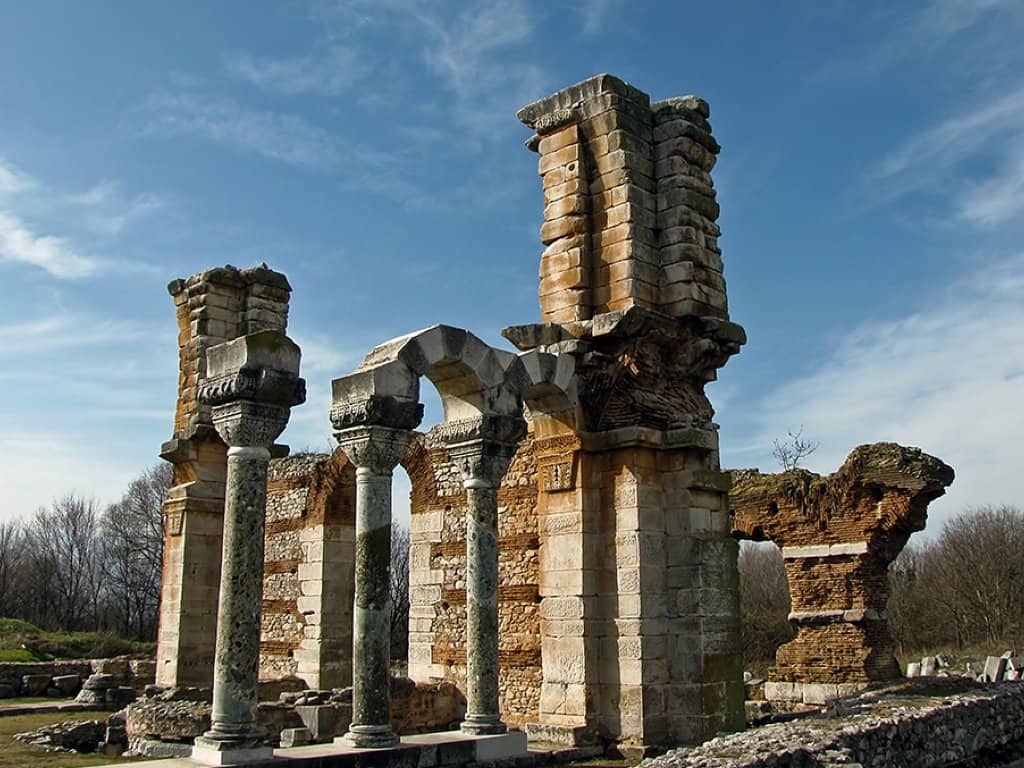
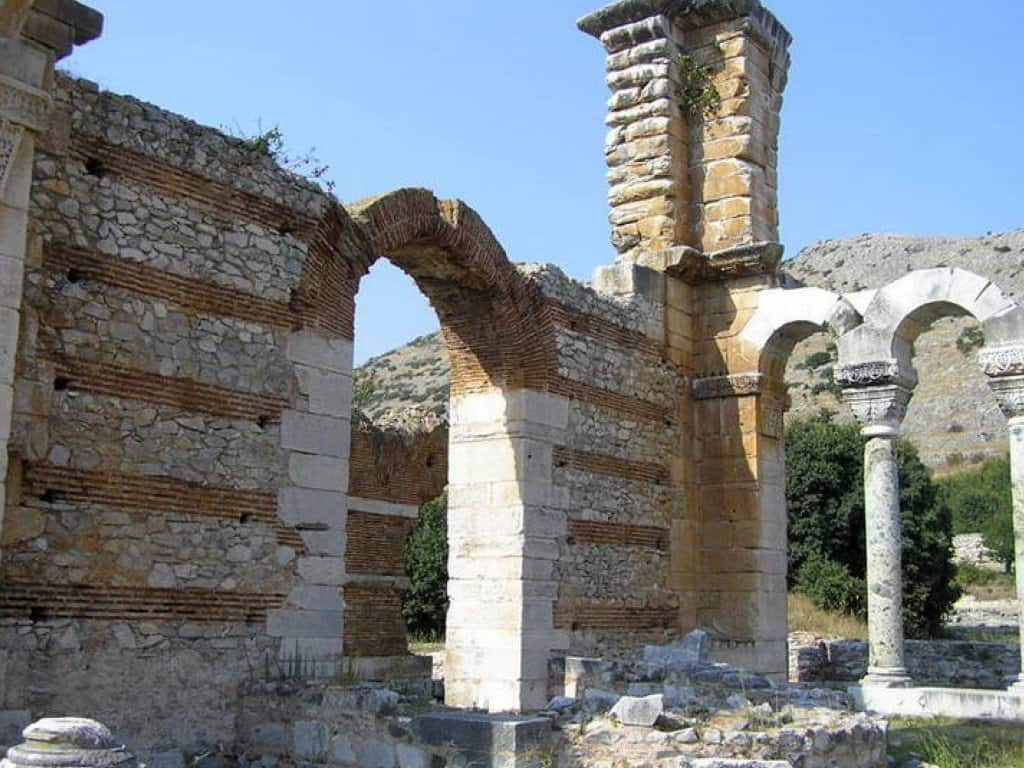
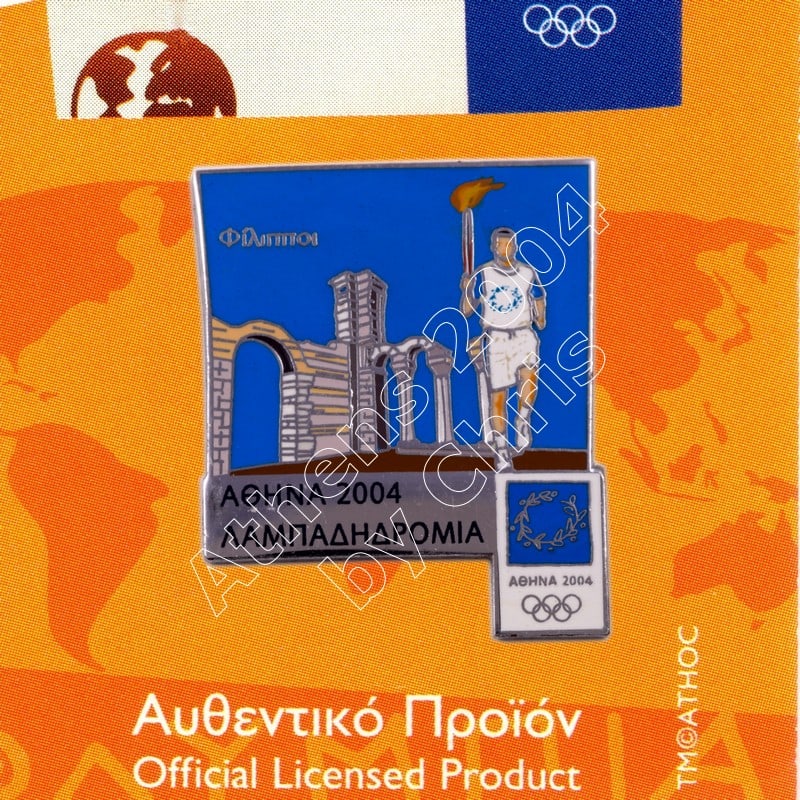
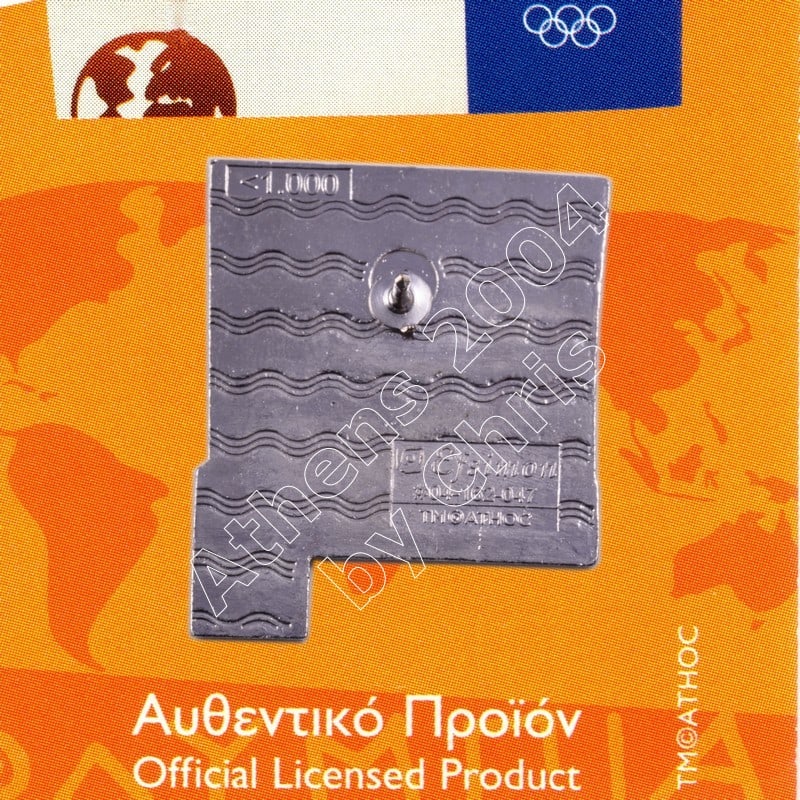


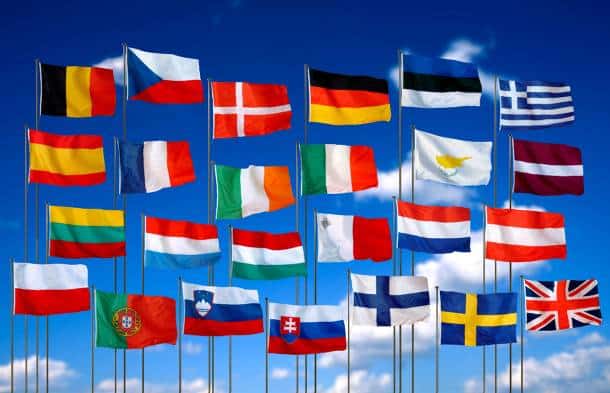
Reviews
There are no reviews yet.